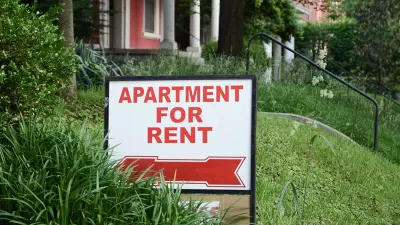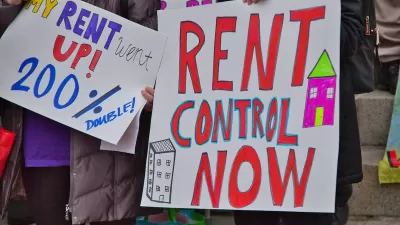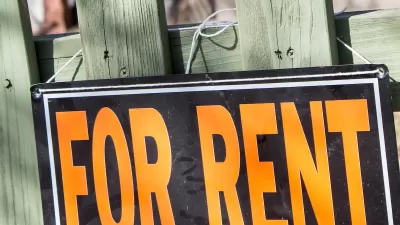The public perception of rent control has been dominated by apartment owner-funded studies and messaging for decades, fostering misconceptions about it's impact, according to poverty law attorney Parisa Ijadi-Maghsoodi.

Rent control has been losing the public perception battle. This circumstance comes as no surprise given that corporate money and profits align with property owners and real estate investors. San Diego poverty law attorney Parisa Ijadi-Maghsoodi provides a concise rebuttal to some of the most common public perceptions about rent control—what she calls the "myths" of rent control:
Myth 1: Rent control is illegal.
Fact: Rent control is legal and an effective tool to address housing affordability.
Myth 2: Rent control decreases the housing stock by disincentivizing new housing construction.
Fact: Rent control has no impact on new construction because it does not apply to new construction.
Myth 3: Rent control causes the rental stock to decrease because rent control units will be converted to condominiums.
Fact: Ordinances restricting condominium conversions protect the stock of rental units under rent control.
Myth 4: Rent control hurts tenants.
Fact: Rent control helps tenants. Rent control studies are funded by real estate developments, investors, and corporate apartment owner associations, and their own data supports the effectiveness of rent control.
Myth 5: Rent control is not needed, building market rate units will solve the housing crisis.
Fact: Building market rate units without effective tenant protection ordinances exacerbates the housing crisis.
Myth 6: Rent control incentivizes tenants to remain tenants, rather than become homeowners invested in their communities.
Fact: Society has traditionally favored homeowners over tenants primarily because homeowners intend to reside in and better their community, and rent control furthers these goals.
To match these "myths," in her article, Ijadi-Maghsoodi provides 7 recommendations for additional measures to stabilize rental housing and protect families. For Ijadi-Maghsoodi's reasoning and authority for her conclusions, please read the source article.
FULL STORY: Demystifying Rent Control

Alabama: Trump Terminates Settlements for Black Communities Harmed By Raw Sewage
Trump deemed the landmark civil rights agreement “illegal DEI and environmental justice policy.”

Study: Maui’s Plan to Convert Vacation Rentals to Long-Term Housing Could Cause Nearly $1 Billion Economic Loss
The plan would reduce visitor accommodation by 25% resulting in 1,900 jobs lost.

Planetizen Federal Action Tracker
A weekly monitor of how Trump’s orders and actions are impacting planners and planning in America.

Wind Energy on the Rise Despite Federal Policy Reversal
The Trump administration is revoking federal support for renewable energy, but demand for new projects continues unabated.

Passengers Flock to Caltrain After Electrification
The new electric trains are running faster and more reliably, leading to strong ridership growth on the Bay Area rail system.

Texas Churches Rally Behind ‘Yes in God’s Back Yard’ Legislation
Religious leaders want the state to reduce zoning regulations to streamline leasing church-owned land to housing developers.
Urban Design for Planners 1: Software Tools
This six-course series explores essential urban design concepts using open source software and equips planners with the tools they need to participate fully in the urban design process.
Planning for Universal Design
Learn the tools for implementing Universal Design in planning regulations.
Caltrans
Smith Gee Studio
Institute for Housing and Urban Development Studies (IHS)
City of Grandview
Harvard GSD Executive Education
Toledo-Lucas County Plan Commissions
Salt Lake City
NYU Wagner Graduate School of Public Service





























